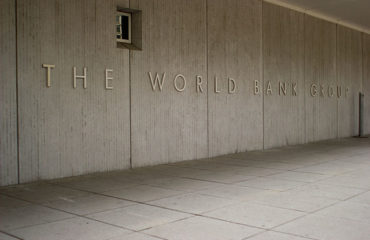
Imagine that you were contacted by a World Bank manager to have an interview because of your previous application in the Bank Internship Program (BIP). This would be quite an achievement given the harsh competition that BIP candidates have to face during the selection process. However, every year, many World Bank Internship applicants go through this situation and end up failing because of a lack of preparation before the interview.
To never have go through that feeling of getting close and losing the internship opportunity of your life, check out this article filled with essential tips to make sure you ACE the World Bank Internship Interview!
Aiming at offering a custom help to candidates of the WB Internship that will have to face an interview, OpenIGO Network has prepared a tailored Mock Interview service.
You will have a simulation of the interview phase with a professional who has extensive experience and knowledge of the World Bank Internship interview. As a result, you will highly increase your chances of succeeding during this decisive stage of the selection process. Get our assistance now:
SCHEDULE YOUR WORLD BANK INTERNSHIP MOCK INTERVIEW
The World Bank Internship Program Interview is the second round and is usually held 2 (two) to 5 (five) weeks after the application deadline. They are long-distance interviews, usually held by telephone or video conference software (such as Skype). Therefore, candidates do not need to travel. Interviews tend to take 30 to 60 minutes and are conducted by one or two people from the unit that is interested in having an intern. In other words, the Human Resources department does not normally carry out the interview and, therefore, there is a great variation in the way it is conducted.
The Bank’s selection interviews combine different interview models, such as the traditional, behavioral event and puzzle interview. They generally follow a semi-structured model, with questions that aim to reveal further details of the candidates’ competences, knowledge, way of thinking, interests and experience.
Note: only successful candidates will be contacted by the World Bank to arrange a date to start the internship. This usually happens one or two weeks after the interview has been held.
Here is an overview of the three types of interview adopted by the WBG:
- The Traditional Interview
It is also one of the oldest methods of formulating an interview, following an easily identifiable pattern: the interviewers ask questions, which require short and direct answers, and seek to identify a specific element. The questions posed to candidates are usually linked to elements listed on their resumes, information on the application form and essay. This approach is demonstrated in the World Bank Internship interview, in the form of questions about candidates’ prior work experience, their area of study and specialization, as well as their course completion work (thesis and/or dissertation).
- Brain Teaser Interview
The brain teaser interview (also known as a puzzle interview) is an interview method in which the candidate is faced with questions containing enigmas or problems, which should be solved immediately. Brainteaser questions provide information such as: a) How a person performs under stress; b) The mental process the candidate uses to analyze a problem; c) How creative or innovative the solution proposed by the candidate is; d) How the person reacts to unforeseen challenges or difficult problems. Even though the related topics are not from the candidate’s area of specialization, this type of question is posed in the World Bank Internship selection process so that recruiters can evaluate the applicant’s problem-solving skills/approach.
- Behavioral Event Interview
The behavioral event interview (BEI) is the type of interview predominant on the World Bank Internship Program and aims to assess candidates’ competencies. In other words, beyond specific knowledge or the capacity to solve certain problems, these interview questions aim to evaluate whether a candidate has the competencies an organization is looking for. Therefore, the questions posed during the interview aim to discover whether the interviewee has the competencies pre-selected by the organization. To evaluate competencies, the BEI sets off with the premise that the best predictor of an individual’s future behavior is their past behavior. When attempting to identify an individual’s competencies from their past behavior, the BEI seeks to: make it difficult for the candidate to invent answers about competencies that they do not really have; avoids subjective evaluations based on future hypotheses and allows the interviewers to explore details in related situations, thereby identifying inconsistencies in the answers provided.
WB Internships – Mock Interview
The best way to prepare for the World Bank Internship Interview is to understand how the questions posed by the interviewers are structured, and what are the expected responses. In our eBook (World Bank Internships: The Complete Guide) you will have access to this information in detail, but here we are going to provide you with some of this knowledge:
BEI questions usually start with: “talk about a time…”; “give me an example of a time when…”; “describe a situation…” and “how you dealt with a given situation…”. Some examples of these questions are as follows:
- Tell me about a time when you had to work on a project which you considered daunting.
- Give me an example where someone came to you to resolve a complicated situation.
- Tell me about a project which you finalized, even though many thoughts that you were not capable of this.
But, as important as understanding how the questions are posed, is knowing how to structure your answers. In our eBook we provide some techniques that can be applied. Here is one of them:
Firstly, the candidate should narrate the context in which the situation took place, then report the problem identified, the solution proposed, how it was implemented and the results achieved. This entire sequence should be included, describing the interviewee’s personal contribution to the process. In other words, what the candidate should always bear in mind is that the main focus of the answers should be themselves. The interviewer needs to precisely identify what the candidate did, even though the situation is related to group work, for example.
In our eBook, we expound upon other strategies that candidates can use to structure their responses. We also present some question/answer examples to help candidates understand these strategies in depth. This article is only a small sample of the extensive content present in our excellent eBook. Following the tips and suggestions given in the World Bank Internship eBook, and having a Mock Interview with us will fully prepare you for this competitive selection process and increase your chances of succeeding at it.
WB Internships – Initial Package






